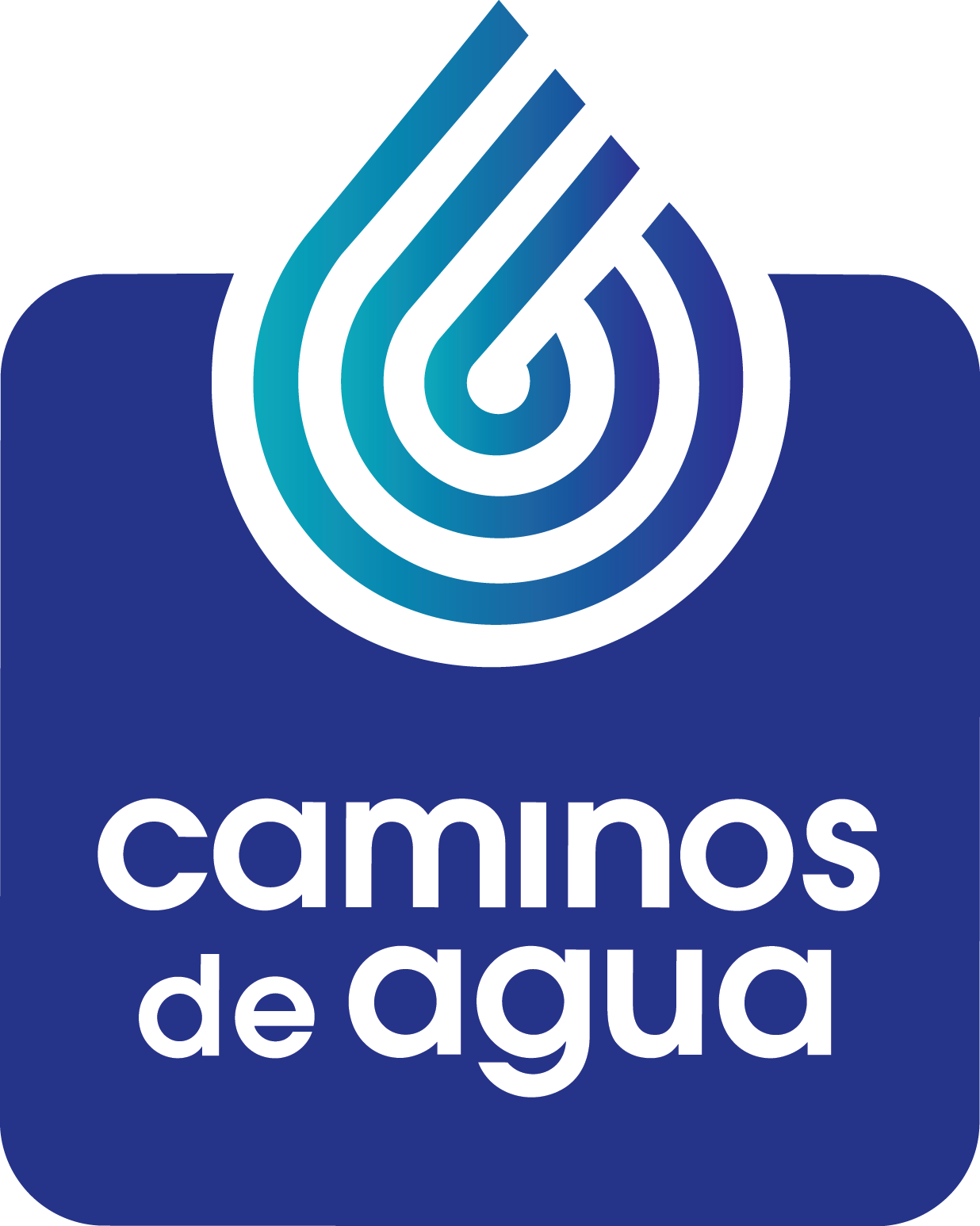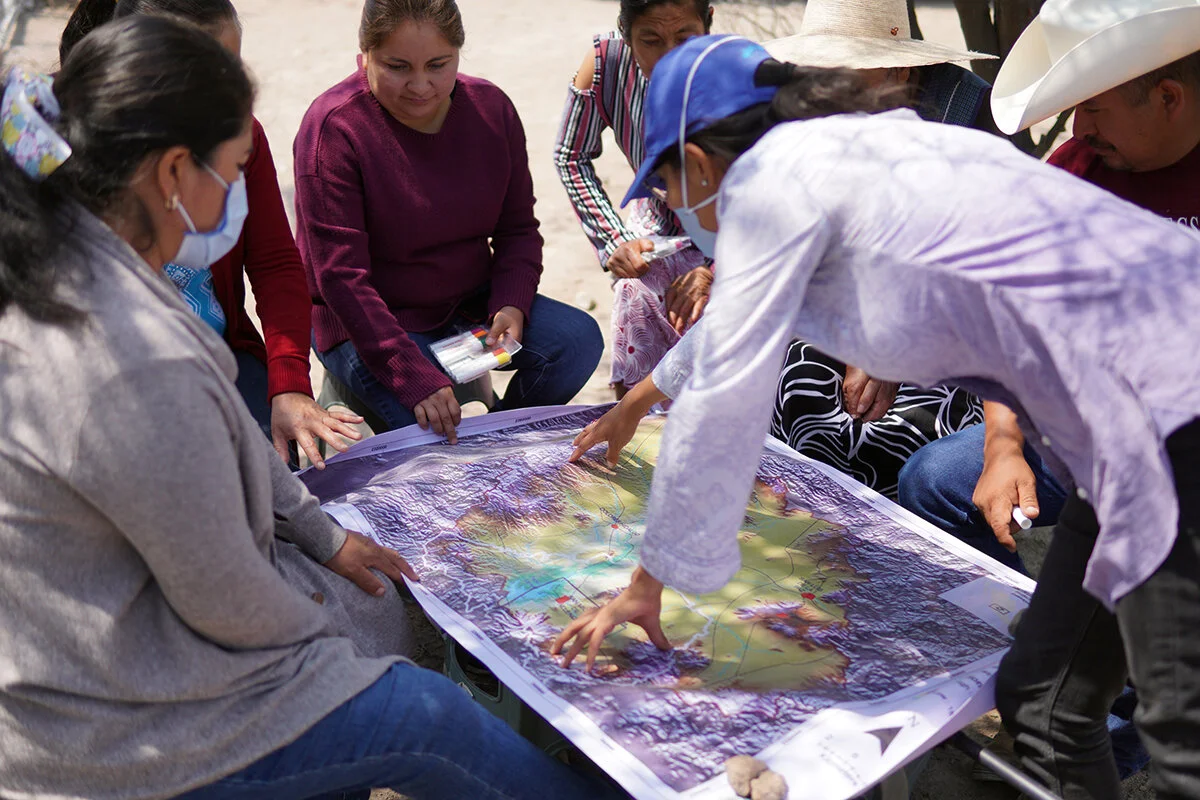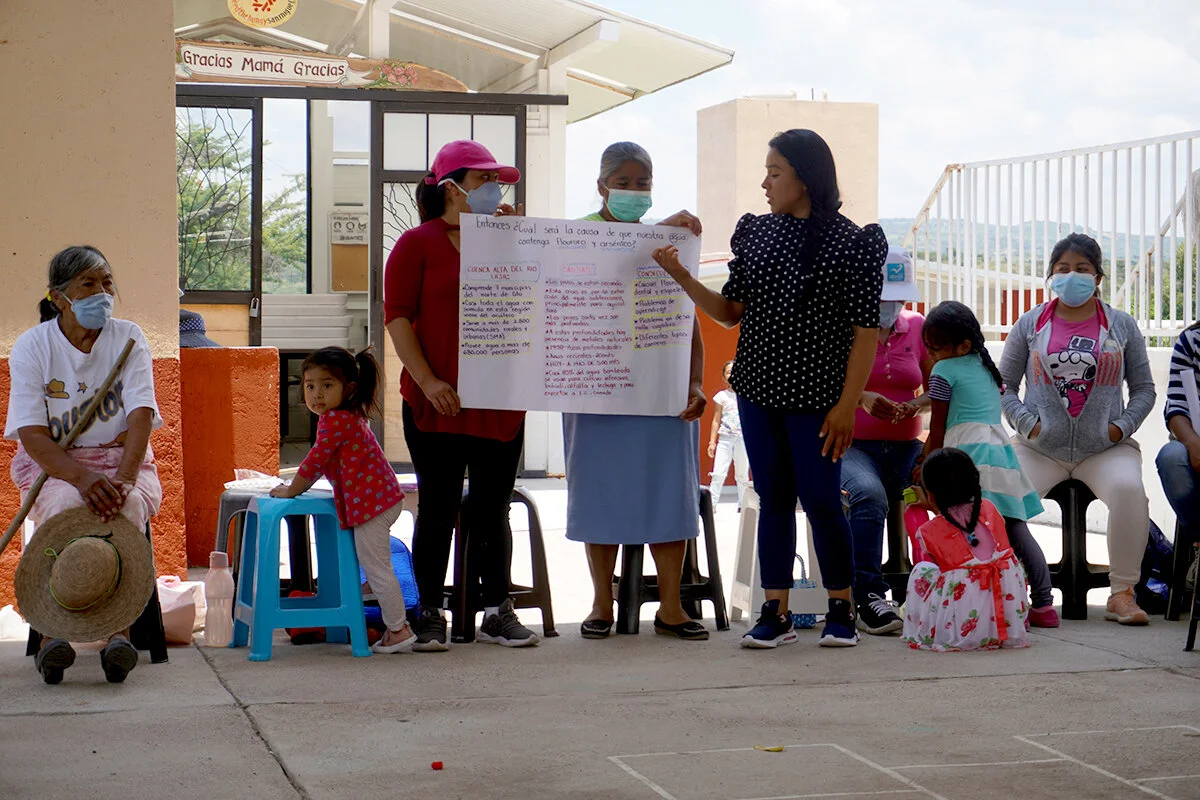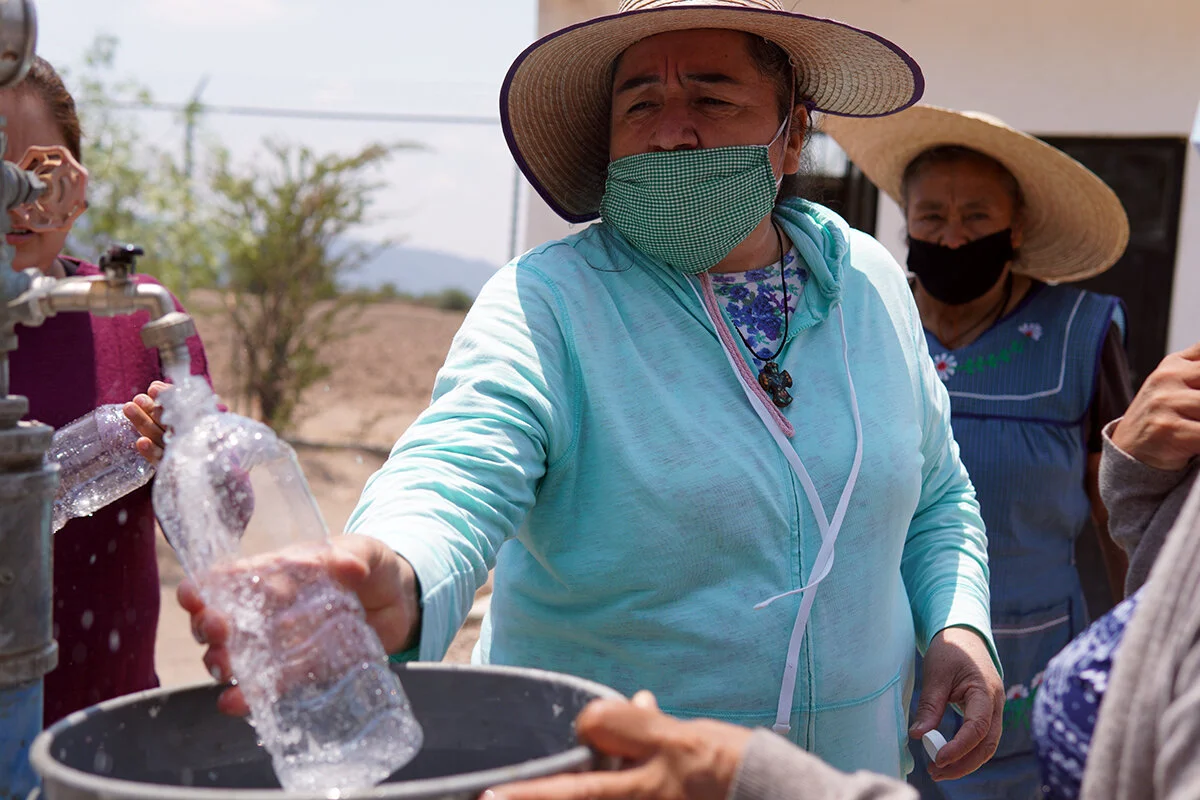Learn How Women are Shouldering the Weight of Our Water Crisis
An Unfortunate Fact: Our Region’s Water is Increasingly Contaminated
Photo: Ana Torres, Caminos de Agua's Community Organizer, at the community of Pozo Hondo showing a map of the Upper Rio Laja Watershed.
In 2012, the Mexican Government declared that adequate access to clean water is a fundamental human right for everyone. Yet, in the last ten years, Caminos de Agua, through our water monitoring program, has determined that many thousands of people, across hundreds of communities in the northern portion of the State of Guanajuato, don’t have reliable access to the safe drinking water that is necessary to sustain life.
The major culprit is the continual over-exploitation of our aquifer by the agricultural industry. Growing products almost entirely for export, this industry utilizes more than 85% of the available water in our region to fuel its growth. The Upper Río Laja aquifer is our underground water reservoir that provides water for 680,000 people residing in more than 2,800 rural communities as well as urban centers. Due to over-extraction, the aquifer is dropping approximately 2-3 meters (6-9 feet) every year. This is causing existing wells to dry up and, in many cases, completely collapse. In order to reach water, those who can afford it are drilling deeper and deeper and the water they are reaching is increasingly contaminated by naturally-occurring arsenic and fluoride.
When consumed continuously, arsenic and fluoride can be extremely detrimental to human health. Some of the well-established health effects include chronic kidney disease, skeletal fluorosis that deforms bones and makes them brittle, skin lesions, and several kinds of cancer. Children, because their bodies and brains are developing, are particularly vulnerable to cognitive impairment and learning disabilities that occur from nothing more than drinking this contaminated water.
Women and Water
Photo: A community leader from Salitrillo giving a presentation about water issues.
While children are the most susceptible to the health effects of our water crisis, it is women who are bearing the brunt of dealing with water issues. As Dr. Jaime Hoogesteger, a long-time Caminos de Agua technical advisor has reported, the public policy actions taken – and not taken – have produced a large migration from rural communities to the U.S. and Mexican cities, especially among men. The massive outflow of males from Northern Guanajuato has had an enormous impact on the demographic and cultural landscape of our region. We find that well over 90% of the people we work with in rural communities are women. Women are often the head of household – not only responsible for their children but also parents, siblings, and other family members.
It is the women who are often tasked with finding and transporting water, when little is available, or finding other ways to solve their water problems, like working with Caminos de Agua to create solutions. It is the women who organize their communities, and do the work to build these solutions. At Caminos de Agua, we have tailored our programs to support these women. We provide educational opportunities to them regarding their family’s water situation, and we work with them to evaluate their risks, understand their options, and develop plans of action. From there, we partner closely with women to finance and implement solutions to their increasingly complex water situations. This work is more important now than ever before.
Help Empower Our Communities through Rainwater Harvesting
Photo: Lucha, long term collaborator of Caminos de Agua and community leader, taking a water sample from a well at the community of Misión de Chichimecas.
Caminos de Agua is currently working across a broad number of critical initiatives including developing new technical solutions, advocating for better water policy, testing water throughout our region, raising awareness and educating the public, and more. However, working with rural and urban communities to provide rainwater harvesting is our most actionable strategy that is delivering the life sustaining drinking water to more people who desperately need it right now, today.
If you have been reading the preceding emails in this campaign, you know that the water crisis is affecting urban centers like San Miguel de Allende, Delores Hidalgo and San Luis de la Paz as well as our regions’ rural communities. You also know that when Caminos de Agua works with communities, we not only implement water solutions, but we closely partner to provide on-going education and planning, leading to stronger, more resilient, and more united communities.
It is truly unfortunate that the need for our work is expanding, but we are prepared and equipped to meet the need. But to do that, we rely upon the funds that we raise from supporters just like you. So whether you have given before or this is your first time, please consider making a donation today by clicking on the donate button below. All contributions right now are going directly to building dozens of rainwater harvesting systems in the 15 rural communities we are currently working in. We stand ready to answer questions you may have, or to talk about your own water situation at info@caminosdeagua.org. Thank You!




